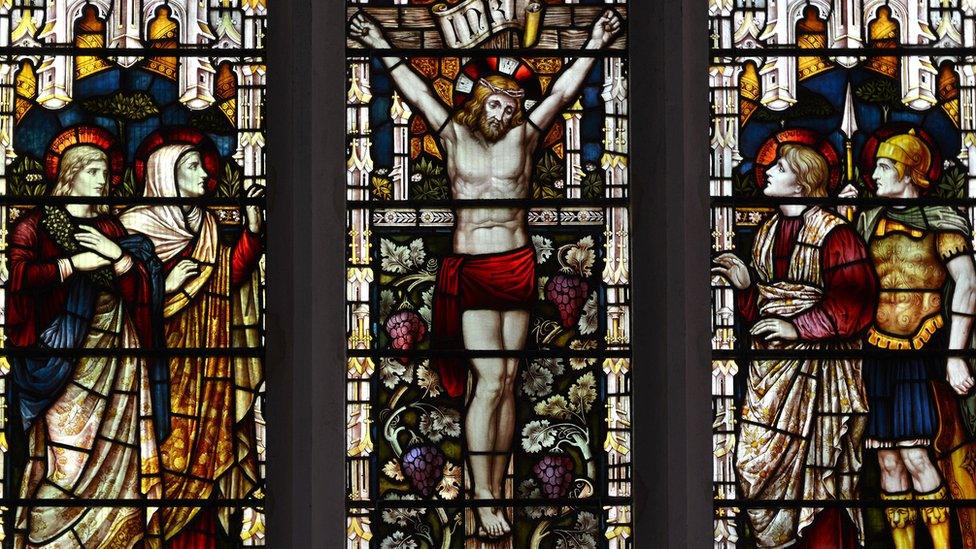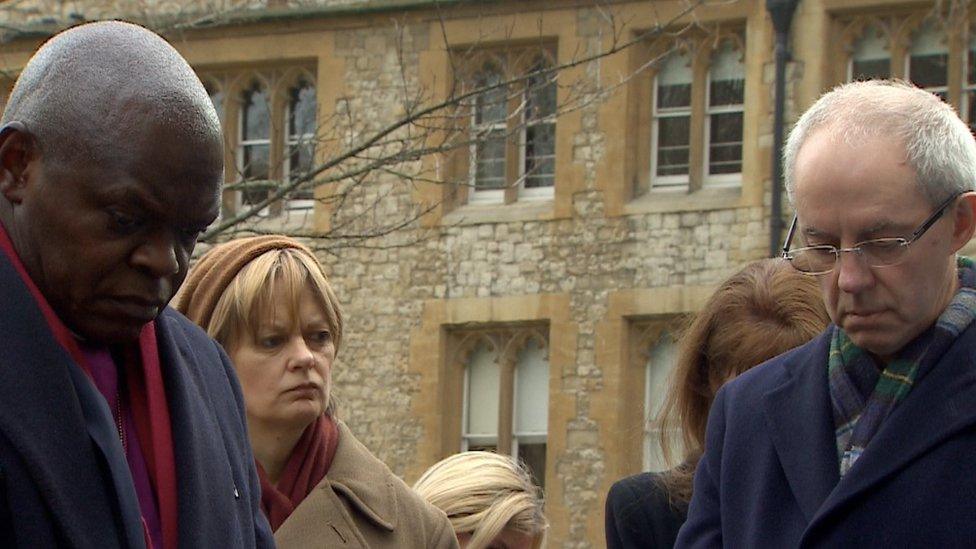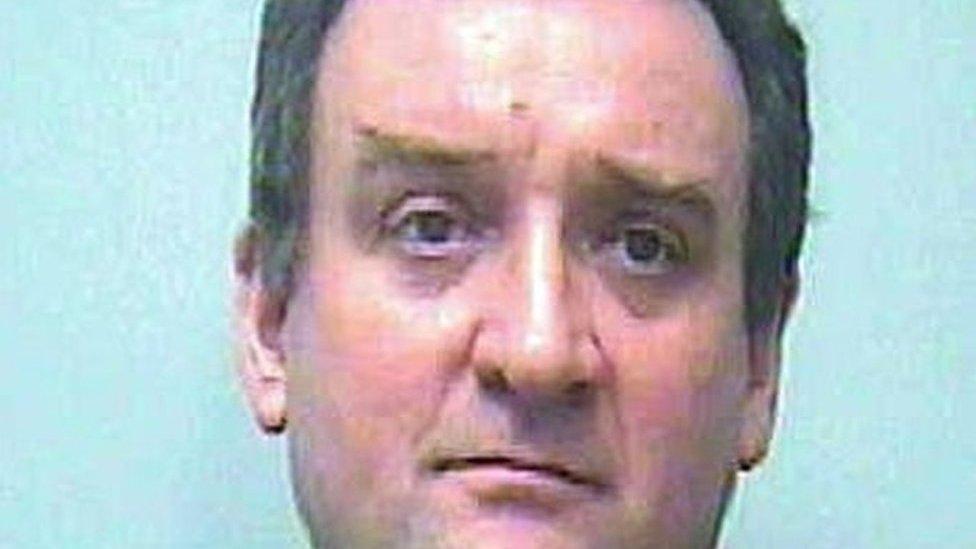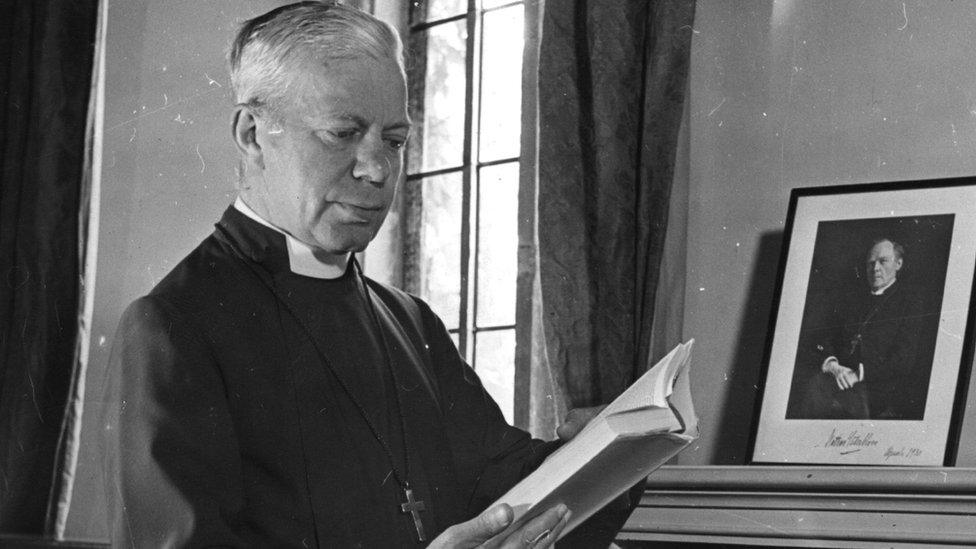Church of England 'needs to review' abuse inquiry in seven dioceses
- Published
Sir Roger Singleton carried out a review on how abuse allegations were reported
A Church of England investigation into alleged child sexual abuse failed to identify at least 22 cases of possible abuse, an inquiry has found.
Sir Roger Singleton, who examined the Church's "flawed" Past Case Review (PCR) held between 2007 and 2009, said it "failed to give a complete picture".
The missed cases were from 16 out of a total of 44 dioceses.
The CofE's lead on safeguarding, Bishop Peter Hancock, said the Church had taken the criticisms "very seriously".
The police are "engaged in a major operation" in another diocese, according to the report.
The review was due to be published next month, but was released earlier following an investigation by BBC News.
The report states that all cases identified "have been closed or are currently being effectively managed."
It added: "Whilst uncertainties remain, this provides some assurance that in most cases identified in 2007-09 the current risk to children either no longer exists or is subject to active management."
However, Sir Roger has said new inquiries should be held in seven of the dioceses investigated.
The Church has outlined four steps for improvement.
They include the creation of an independently-chaired panel featuring survivors which will look at options to redress past cases, an independent ombudsman to review how complaints are handled and a strengthening of the clergy recruitment process.
The Right Reverend Bishop Hancock said the Church would offer "full support" to make sure the report's recommendations are implemented.
He added: "We are committed to making sure that any known individuals who have not been dealt with appropriately in the past are assessed and any current potential risks to children and others are rigorously managed, including by reporting these individuals to the statutory authorities for investigation."
'Inappropriate conduct'
There will also be "closer working with the Catholic Church to support survivors of sexual abuse".
In his report, Sir Roger said there was "inconsistency" and "confusion" across the dioceses about which Church employees should be investigated by the PCR.
Because of this, he said, there "remains the possibility that parish workers who had engaged in inappropriate conduct were not included because they were considered outside the scope of the PCR".
Another flaw was the Church's decision to contact alleged victims "only in the most exceptional cases" to "minimise the distress" to them.
Speaking on BBC Radio 4's Today shortly before the report was published, Sir Roger said it seems "extraordinary" now that the Church investigators did not meet with more victims but "the importance of listening" to them was "less understood" in 2010 than it is now.
'Well-intentioned'
In his report, Sir Roger said: "By not including them, their views were absent from the review and perhaps particularly from the lessons learned."
Writing on a blog, external, the Bishop of London, the Right Reverend Dame Sarah Mullally, said the Church had "not yet understood what it is or looks like to put victims and survivors at the heart of what we do."
But she insisted that leadership for safeguarding people remained within the CofE, adding: "I do not believe that the Church should lose responsibility for ensuring that it is a safe place."
The PCR looked at some 40,000 files detailing accusations but Sir Roger was critical that some dioceses "did not know where the files were".
Other records, he said, "referred vaguely to an 'unfortunate saga' or 'past difficulties'" which "generates a risk" they were not investigated properly as possible abuse.
Sir Roger earlier told Today that the PCR had been "well-intentioned" but the Church needs to "complete the incomplete job", a message echoed in his report.
The Archbishop of Canterbury Justin Welby said the Church's failures were "deeply shaming".
Survivors have accused the Church of a "wholly inadequate" response.
- Published22 June 2018

- Published10 February 2018

- Published9 October 2017

- Published15 December 2017
